
Smothering Gas Exports: President Sides with Environmentalists Over Environment
Dr. Benjamin Zycher, a senior fellow at the American Enterprise Institute, talks on the impact of President Biden's executive order to halt liquefied natural gas export approvals. He explores potential economic impacts, the response from trading partners, and the negligible effect on climate.

Pioneer Statement on Continuing Slide in Massachusetts’ Revenue
The Commonwealth’s tax collections continue to slide, totaling $3.594 billion in January, $268 million below what the state collected in January 2023, and short of the revised benchmark by $263 million. Massachusetts state government must live within its means by reducing FY2025 spending. The days of fiscal surpluses, unprecedented increases in year-over-year spending, and flowing federal aid have come to an end.
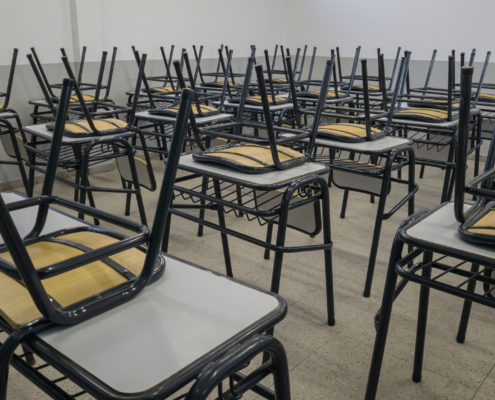
Teachers strikes hurt the students
At a time when the country’s basic commitment to the rule of law is being questioned, Newton educators are teaching their students that breaking the law and thumbing one’s nose at a judge’s order are OK — if it is in your self-interest.

Pioneer Statement on Decline in State Revenues
The Commonwealth’s finances have stumbled hard in recent months, and based on a report the Department of Revenue (DOR) sent to the Legislature in January, the trend shows no signs of easing. Massachusetts needs a renewed emphasis on fiscal discipline and pro-growth policies to make the state economically competitive again.

BC’s Dr. Matthias von Davier on TIMSS & K-12 Global STEM
Dr. von Davier explores his educational background and its influence on directing TIMSS & PIRLS, shedding light on psychometrics and standardized testing. He discusses the shift in education policy's focus, the global education data landscape, and the pandemic's effects on K-12 education around the world. Dr. von Davier addresses the alarming decline in U.S. educational performance, emphasizing the urgency to bridge achievement gaps. Drawing from international experiences, he highlights global examples for American policymakers from higher-performing countries, emphasizing the crucial links between education, skills, and innovation on the global economy.

U.S. Manufacturing Health: Does the U.S. Need an Industrial Policy?
Scott Lincicome from the Cato Institute discusses the U.S. manufacturing industry, international trade, and industrial policy. He dispels the myth of manufacturing decline, highlighting sector evolution and productivity. The conversation moves to industrial policy, emphasizing the need for targeted protection and cautioning against broad subsidization due to potential inefficiencies.

Skill-based immigration could ease labor shortage
A recent Biden administration executive order that amends the Schedule A list, which identifies occupations experiencing labor shortages and allows immigrants in those occupations to expedite their employment in the U.S., could positively impact the hiring of skilled international workers for years to come — a welcome development as the country and Massachusetts struggle to attract talent amidst a worsening labor shortage.

ExcelinEd’s Dr. Cara Candal on National School Choice Week
Dr. Candal delves into the evolving landscape of K-12 education in the U.S., examining the expansion of private school choice programs post- U.S. Supreme Court decisions, changing political dynamics around charter schools, strategies of the national school choice movement in low-performing states, the role of parent-driven models during the pandemic, the significance of voc-tech education, and addressing underperformance and achievement gaps.
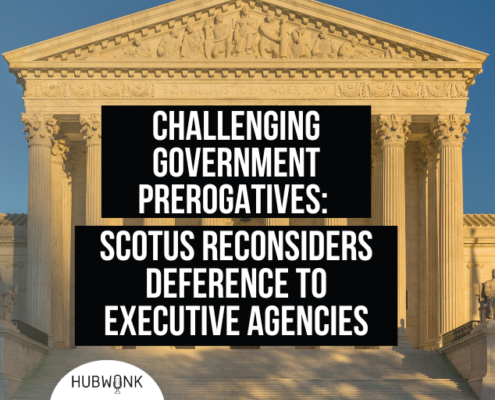
Challenging Government Prerogatives: SCOTUS Reconsiders Deference to Executive Agencies
Joe Selvaggi engages in a conversation with legal scholar Ilya Shapiro from the Manhattan Institute regarding the Loper Bright Enterprises Supreme Court case that questions the Chevron Doctrine. This doctrine instructs judges to defer to government agencies in situations where laws are silent or unclear.

Telehealth Progress Slowed in 2023
A new report by Cicero Institute, Pioneer Institute, and Reason Foundation reveals worrying stagnation in state-level telehealth expansion efforts in 2023, with only a few exceptions. Progress made during the pandemic is being lost even as provider shortages worsen, raising concerns about patients’ access to care.
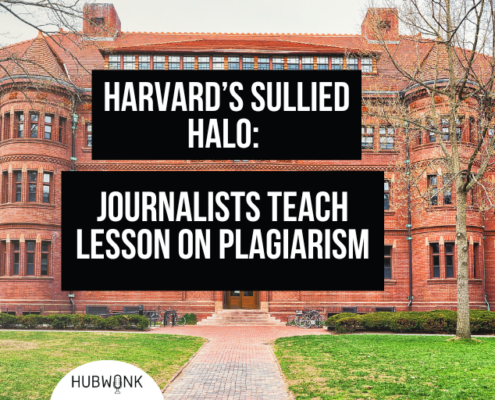
Harvard’s Sullied Halo: Journalists Teach Lesson on Plagiarism
Joe Selvaggi talks with investigative reporter Chris Brunet about his role investigating and exposing former Harvard President Claudine Gay’s academic plagiarism, a story that lead to her eventual resignation.

NYT Bestseller Jonathan Eig on the Rev. Dr. Martin Luther King, Jr.
Jonathan Eig delves into MLK's early spiritual leadership, the influence of Langston Hughes on his speeches, his relationship with his wife, Coretta Scott King, and the Southern Christian Leadership Conference's challenges. He discusses historic events in Birmingham, Alabama, the March on Washington, MLK's struggles in Chicago, the Poor People's Campaign, and the events leading to his assassination in 1968. Eig underscores the multifaceted aspects of MLK's life and provides insights on drawing lessons for contemporary challenges in race relations and leadership.

My Musings on Massachusetts’ Fiscal Picture
Since the start of FY2024 on July 1, 2023, the state has experienced six straight months of revenues falling short of expectations. The single biggest factor is the unprecedented growth of the state budget since FY2021. The $15 billion increase in state spending contextualizes the seemingly modest projected revenue growth of 1.6 percent for FY2024 by highlighting that the base is very inflated.

Olympic Track Medalist Gabby Thomas
Gabby Thomas, Pioneer Valley native, Harvard alum in neurobiology, and Olympic sprinter, won bronze and silver in Tokyo, she also pursued a master's in epidemiology. She shares her journey excelling both in academics and athletics.

Drug Discount Distortions: How Middlemen Increase Costs and Reduce Access
Joe Selvaggi talks with Drs. Bill Smith and Robert Popovian about how the complex system of rebates from drug companies to insurance firms serve to increase costs and reduce access for patients.

T.J. Stiles on Cornelius Vanderbilt & American Business
T.J. Stiles delves into the life of America’s first tycoon, Cornelius Vanderbilt, exploring his rise to historic wealth in steamboats, shipping, and railroads. He discusses Vanderbilt's legal battles, philanthropy, and enduring legacy, exploring his business competitiveness and wide impact on 19th-century America’s economy.

Carol Zaleski on The Lord of the Rings & Narnia
Prof. Carol Zaleski discusses the literary impact of the Inklings, focusing on J.R.R. Tolkien and C.S. Lewis, exploring their lives, works, and enduring moral contributions in today's cultural landscape.

Boston’s Building Bargain: Coaxing Commercial Conversions to Condos
Joe Selvaggi discusses the strategic goals of Boston's Downtown Office to Residential Conversion Pilot Program with Arthur Jemison, the head of BPDA planning. The aim is to transform underutilized offices in Downtown into vibrant places to live.

Emily Hanford on Reading Science & K-12 Literacy
Emily Hanford, host of the hit podcast Sold a Story: How Teaching Kids to Read Went So Wrong, discusses the science of reading, the long whole language v. phonics debate, the impact of the digital age on learning, and the importance of academic background knowledge for children becoming better readers.

SCOTUS Wealth Tax: Are Appreciated Assets Income?
Joe Selvaggi talks with CATO Institute constitutional scholar Thomas Berry about the recently argued Moore v. U.S.A. case, which challenges the idea that income must be realized before it can be taxed.

Francine Klagsbrun on Golda Meir’s Leadership and the State of Israel
This week on The Learning Curve, Francine Klagsbrun, author of "Lioness: Golda Meir and the Nation of Israel," discusses the remarkable life and legacy of the woman who left Kiev as a child, grew up in Milwaukee, emigrated to Mandatory Palestine, was a signatory to the declaration of independence for the state of Israel, and rose to become that nation's fourth prime minister.

Except in Florida, There’s Really No (High School) Debate
In much of the country, the state of America’s High school debate is not strong. Teachers and education professionals have become indoctrinated in an identity-obsessed, grievance-seeking body politic. But in Florida, students must thoroughly research debatable positions and are actually expected to engage with those who disagree.
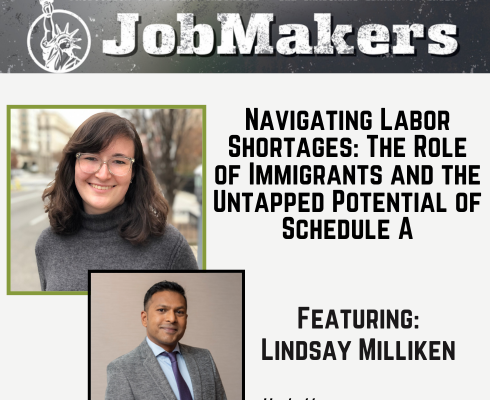
Navigating Labor Shortages: The Role of Immigrants and the Potential of Schedule A
Milliken underscores the current unprecedented combination of low unemployment and high job openings, particularly in sectors like hospitality, healthcare, and education. She addresses the vital role immigrants play in the workforce, and advocates for leveraging Schedule A, a regulation that expedites the green card process for occupations facing high labor demand.

Hillsdale’s Dr. Kathleen O’Toole on K-12 Classical Education
Dr. O'Toole explores Hillsdale's mission and its impact on K-12 education, delving into classical education, Greco-Roman ideals, Enlightenment principles, and the college’s efforts to enhance education. She discusses the challenges faced in exporting Hillsdale's model to K-12 public schooling, critiques of American education, and the role of the liberal arts in fostering academic unity amidst societal divisions.

Supreme Oral Arguments: Do Gun Rights Rest on Responsible Behavior
Joe Selvaggi engages in a conversation with constitutional scholar Attorney Clark Neily to explore the oral arguments presented in the US Supreme Court case USA v Rahimi. The discussion delves into the intricate examination of behavioral history and the legal processes involved in restricting an individual from owning a firearm.

A nuclear winter is coming for biopharma
The life sciences sector in Massachusetts — which has been flying so high for so long — is about to experience a very hard landing. With the adoption of prescription drug price controls in the Inflation Reduction Act (IRA), drug research and development — the heart of the life sciences sector in Massachusetts — is about to experience a nuclear winter.

National Alliance’s Nina Rees on Charter Public Schools in America
Prof. Albert Cheng and Charlie Chieppo interview Nina Rees from the National Alliance for Public Charter Schools on policy gains, charter school growth, challenges, debates, federal spending, and academic recommendations.

The Crux at the Center of Childcare Affordability
In recent years the cost of childcare has skyrocketed in Massachusetts, contributing to the state being one of the least affordable places to raise a child in the country. At the center of the problem are three structural issues: rigid unnecessary government regulations that seek to ensure quality and safety but oftentimes significantly increase costs and decrease the supply of providers without a proportional benefit; high labor costs and the inability to increase the productivity of workers limiting the profitability of providers; and the demands of high income parents to outfit providers with every available perk. State policymakers often see subsidies as the best solution, but while transferring the cost to taxpayers subsidies do little to address the structural supply constraints at the crux of the affordability crisis.
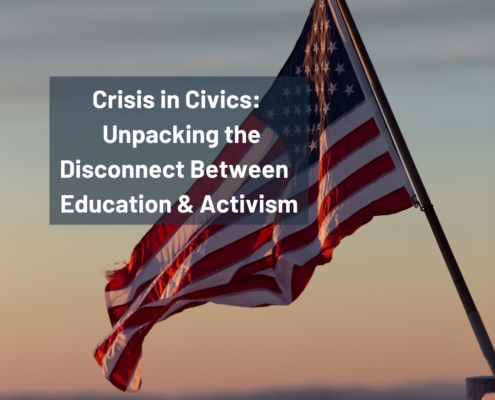
The Disconnect Between Education and Activism
I’m sympathetic when I hear individuals lament cancel culture, radicalized student bodies, and anti-free speech climates in our institutions of higher learning. In many ways, it's right to do so. But in our defense, I might suggest that our lack of aptitude is the result of increasingly substandard history and civics education.

Harvard Prof. Leo Damrosch on Jonathan Swift & Gulliver’s Travels
Harvard Prof. Leo Damrosch discusses Jonathan Swift's satirical genius, political critiques, and literary legacy. He emphasizes Swift's wit, insights, and commitment to liberty, and closes the interview with a reading from his book, Jonathan Swift: His Life and His World.
